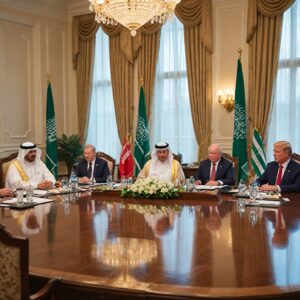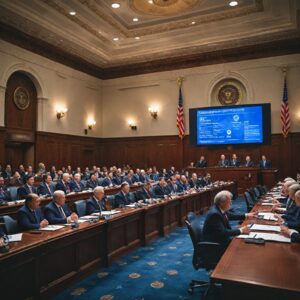
Highlights:
– The recent cancellation of concerts by Japanese artists in Beijing reflects escalating tensions between China and Japan, particularly following comments on Taiwan by Japan’s Prime Minister.
– The abrupt nature of these cancellations showcases the uncertainty foreign businesses face in China, where policies can change rapidly without public notice.
– The broader implications include potential economic consequences for both countries, highlighting the intricate connections between culture, diplomacy, and international trade.
Escalating Tensions and Abrupt Cancellations
In a striking display of the deteriorating relationship between China and Japan, Beijing’s popular music venue DDC found itself forced to cancel a highly anticipated performance by the Japanese jazz quintet The Blend on November 20, 2025. The abrupt cancellation by local authorities came just hours before the scheduled show, leaving fans and organizers in disarray. This incident is not an anomaly, but rather a part of an overarching trend as geopolitical tensions between the two nations intensify, particularly in the wake of remarks from Japanese Prime Minister Sanae Takaichi regarding Taiwan’s defense.
This incident illuminates the broader ramifications of diplomatic strife, especially as cultural exchanges are often the first casualties in international disputes. Businesses, particularly in the entertainment sector, now grapple with an environment characterized by uncertainty, raising questions about future engagements and collaborations. Understanding these tensions is essential, as they not only disrupt cultural interactions but can also signal a deeper shift in economic relationships.
The Business Impact of Geopolitical Strife
The recent concert cancellations are indicative of a larger trend where cultural events serve as early indicators of diplomatic rifts. Christian Petersen-Clausen, a music agent who navigated the complexities of obtaining necessary approvals for The Blend’s performance, noted that the swift shutdown had been overwhelmingly unexpected. Even with all the right permits, the decisions made by local authorities were abrupt and seemingly nonsensical, showcasing the challenges foreign artists face in an unpredictable regulatory environment.
Beyond music, other sectors are feeling the pressure as well. Speculation has arisen regarding a potential suspension of imports for Japanese seafood, underscoring how quickly trade relations can devolve amid diplomatic tensions. Minimizing public communication about emerging policies only exacerbates the uncertainty for businesses trying to operate in a climate of unpredictability. This situation raises concerns for Japanese brands, as well, with fears of a nationwide boycott potentially looms, impacting economic forecasts.
Future Implications and Cultural Consequences
The fallout from these cancellations extends beyond immediate business concerns, as they signal a worrying trend for international relations. The sense of instability may deter future engagements from foreign artists, ultimately harming cultural exchange. As Petersen-Clausen noted, if China continues to impose unpredictable limitations, it risks alienating foreign musicians and impeding person-to-person interactions that foster understanding. This could affect the very essence of soft power diplomacy, as music and cultural events often act as bridges between nations.
Moreover, the economic implications could be profound if tensions persist. Analysts suggest that strained relations may impact tourism and reduce bilateral trade significantly, which further complicates an already delicate economic relationship. The potential for increased barriers to imports or abrupt policy shifts places both countries in a precarious position, affecting their respective industries and market perceptions.
In conclusion, the music venue cancellations in Beijing serve as a microcosm of the larger geopolitical challenges facing China and Japan. As diplomatic relations continue to falter, questions arise about the implications for international cultural exchanges and economic partnerships. How can both nations navigate their differences while fostering art and culture? What role does cultural diplomacy play in conflict resolution? And can long-standing partnerships survive such turbulent times?
Editorial content by Avery Redwood


















